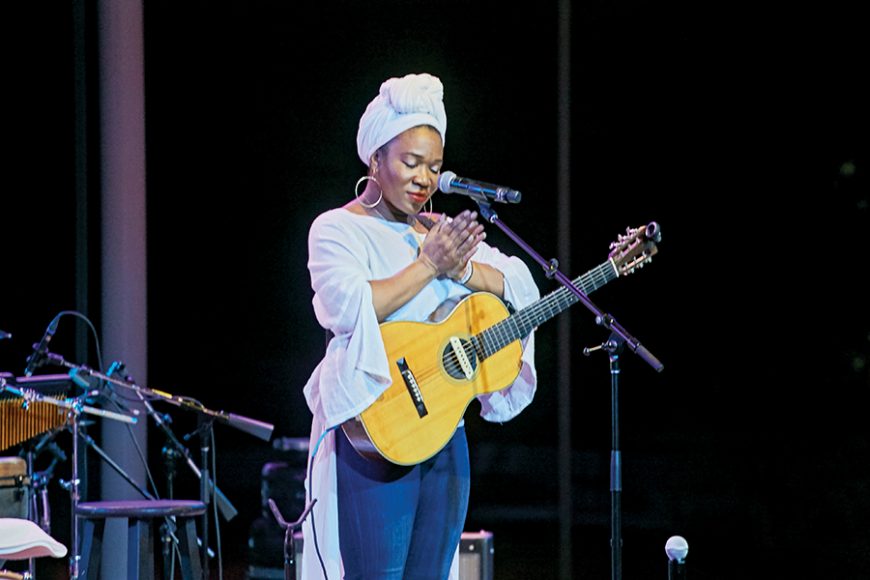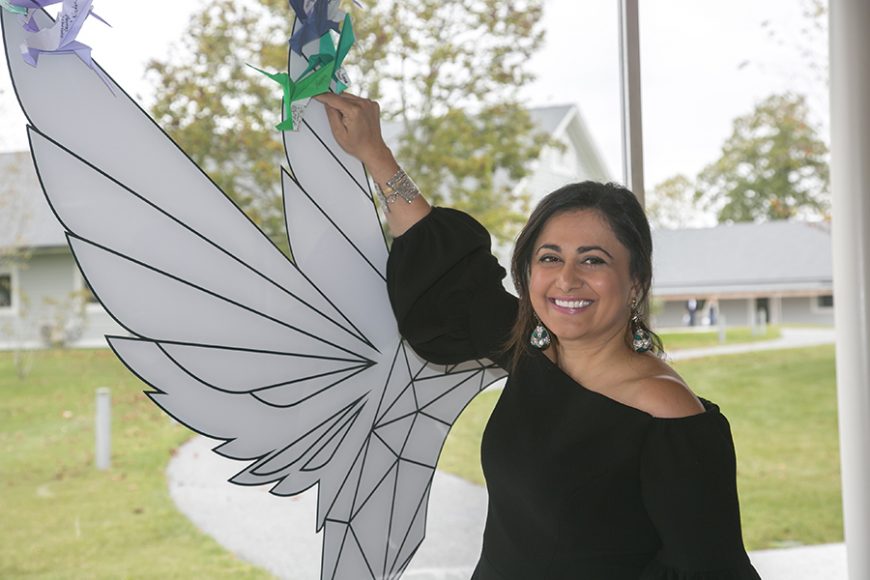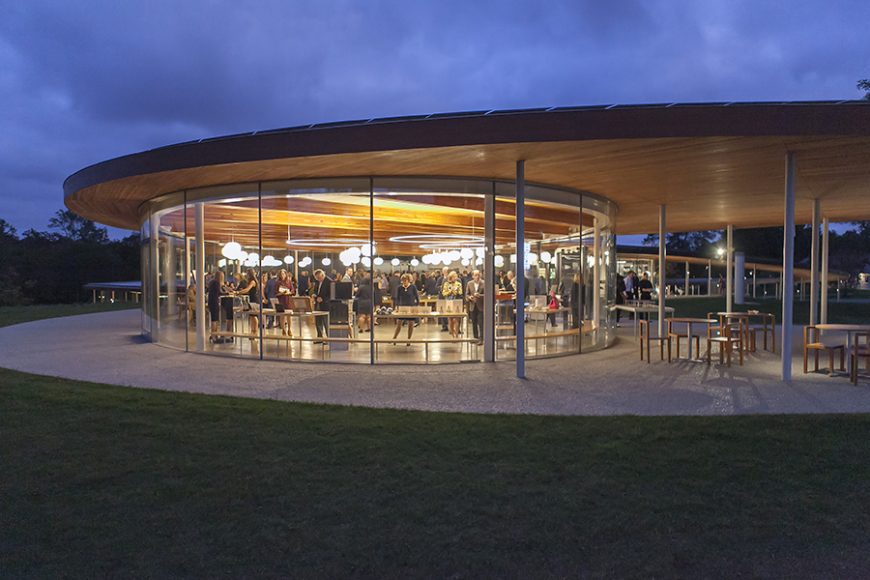Tina Frundt walked outside for a breath of fresh air.
The then 14-year-old from Chicago was celebrating her birthday, which her parents cut short with a 7 p.m. curfew. Looking for an ear to share her frustrations, she confided in a seemingly genuine friend.
Little did she know that this discussion, innocent on her end, would result in her being kidnapped and taken across state lines to Ohio, kept in a padlocked room without windows, forced into modern-day slavery — and then prosecuted for it.
Frundt, now 31, is one of 40 million people worldwide who have fallen victim to sex trafficking, forced labor, debt bondage, child marriage or child militias, resulting in a $150 billion industry, according to the United Nations. Before an audience of some 350 people at Grace Farms in New Canaan, she courageously spoke of resilience — and reality.
“Every day, I have to convince people that my trafficking situation happened here in the United States,” she says, “and I then have to convince them that it’s still going on every single day. I was hidden in plain sight.”
Frundt is now the founder and executive director of Courtney’s House, a New York-based organization that serves underage victims of sex trafficking. She is also a member of the U.S. Advisory Council on Human Trafficking. She joined survivor Aklima Bibi, Grammy Award-winning singer-songwriter and philanthropist India.Arie and policymakers and executives alike, to speak on behalf of the Unchain Campaign, a multimedia effort to raise awareness about modern slavery.
The campaign, which is slated to launch in January 2019, was initiated by Grace Farms Foundation, which opened Grace Farms in November 2015. Grace Farms Foundation’s Krishna Patel, general counsel and director, and Rob Khattabi, director of safety, are lead advisors to the campaign.
“I think change is something that is never straightforward,” Patel says. “It is only through our collective humanity that we can rise to our greatest potential.”
That collective humanity has led to the enactment of Public Act No. 16-71, a Connecticut state law that requires the heightened prosecution of traffickers, increases the age of protected individuals from age 16 to 18 and calls for the detailed collection of data to facilitate a greater understanding of the crime.
In addition, the law mandates the annual reporting of trafficking cases, the development of training programs for identifying and reporting trafficking and the recognition of trafficking crimes to include the use of digital technologies to lure minors.
But despite this, far more work lies ahead. The National Human Trafficking Hotline, a service created to help victims and survivors, has reported 1,438 and 214 cases in the states of New York and Connecticut, respectively, since 2012. While Patel says there are some 2,100 national, nongovernmental organizations that are dedicated to eradicating modern-day slavery, having thus far raised $150 million toward that end, this is a mere dent in an underground industry that operates at 1,000 times this magnitude.
Grace Farms Foundation has since partnered with New York-based WPP agencies Geometry Global and J. Walter Thompson, as well as London-based Shazaam and Stamford-based Thomson Reuters, whose executives were in attendance. Its slogan is “Freedom Needs Fighters.” The hummingbird logo symbolizes that need.
Bibi, a United Kingdom barrister, human rights lawyer and journalist, is, like Frundt, a survivor. Engaged by the age of 9, Bibi was taken from the United Kingdom to Bangladesh and forced to marry as a teenager. While married, she was drugged and abused by the man she refers to as her “so-called husband.”
“I didn’t say any vows,” she says. “I don’t know who said it, but I was supposed to be married.”
After several years, she managed to escape, going on to pursue several degrees and certifications. Now, she says she uses this gift of knowledge to help remove others from such a dire situation.
“We can’t stop until the fight is done. I am determined,” Bibi says. “I may have struggled, but I fought and I am a dreamer, unchained today, with a mission to unchain many other modern-day slaves.”
The evening, which raised $500,000, culminated in a performance by India.Arie, which was met with a standing ovation. The performer, known for her advocacy for the Half the Sky Movement — an initiative to end female oppression — sang her “Soulbird Rise,” which includes these lyrics:
“I believe in open doors,
“I’m outside of the box,
“What did not demolish me,
“Simply polished me,
“Now the clearer I can see.”
“My intention is to spread love, healing, peace and joy,” Arie says. “The door should be open for everyone.”
For more about the Unchain Campaign, visit unchain.org. For information and statistics about human trafficking in this country, visit humantraffickinghotline.org. For more on Grace Farms, visit gracefarms.org.









